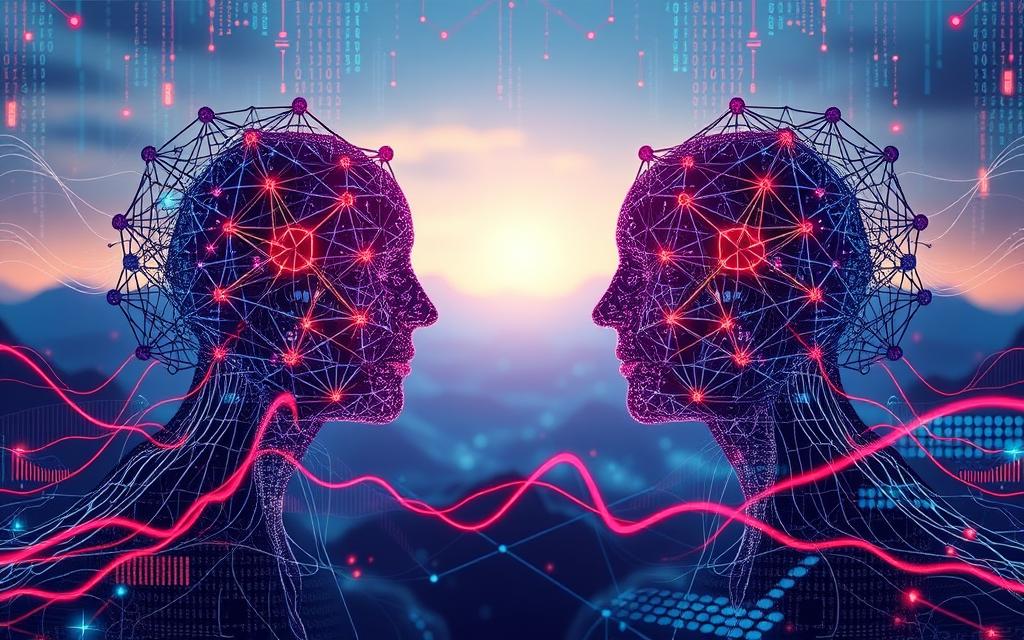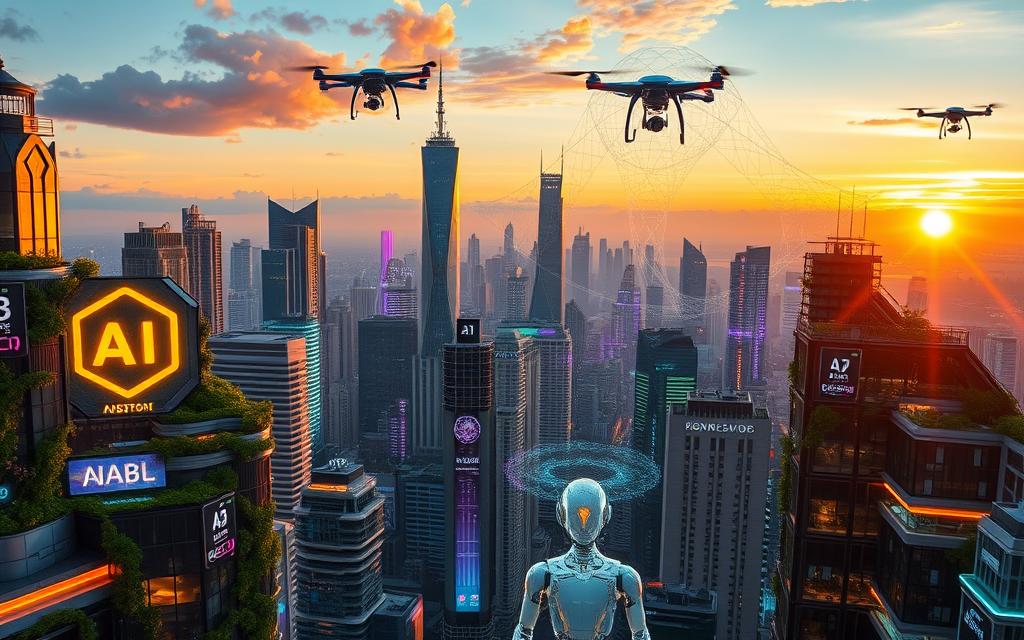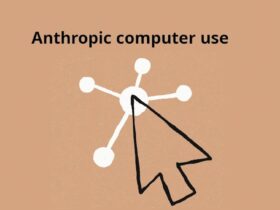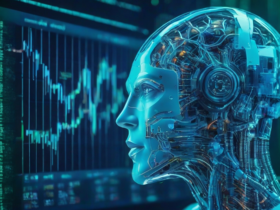The world of artificial intelligence (AI) is changing fast. In 2024, we’ll see new technologies that will change industries and improve our lives. The global AI market is expected to hit $1.3 trillion by 2030. It’s important to know the new AI trends that will shape the future.
AI is growing fast because it works well with other new technologies like the Internet of Things (IoT), robotics, and computer vision. The generative AI market is booming, expected to be worth $136 billion by 2031. This shows how powerful AI tools like ChatGPT are changing how we use technology and solve complex problems.
As AI keeps changing, it’s important to keep up with new trends and technologies. The future looks exciting, with more focus on ethical AI and new kinds of AI models.
Key Takeaways:
- The global AI market is projected to reach $1.3 trillion by 2030, driven by the synergistic integration of AI with other disruptive technologies.
- The generative AI market is expected to grow to $136 billion by 2031, highlighting the transformative power of AI-powered tools like ChatGPT.
- Emerging AI trends include advancements in natural language processing, multimodal AI models, and the increasing focus on ethical AI development.
- Open-source AI models and platforms are making advanced AI technologies more accessible to everyone, not just big companies.
- Robotics and automation are getting better at doing many tasks at once, thanks to new AI systems.
GPT-4 and the Rise of Language Models
The rapid growth in natural language processing has brought us into a new era of AI. GPT-4 is at the forefront of this change. Its predecessor, GPT-3.5, had an impressive 175 billion parameters, more than 10 times GPT-2’s size. This growth has made GPT-3.5 incredibly good at understanding and creating text that looks like it was written by a human. Companies in many fields use GPT-3.5 to automate content creation. For example, one media company uses it to make thousands of articles every day.
The Power of GPT-4
GPT-4 is set to take things even further. It’s rumored to have over 200 billion parameters, making it even more powerful than GPT-3.5. Companies are excited about GPT-4’s potential in content generation, customer support, and virtual assistants. They see it as a game-changer for their businesses.
Multimodal Capabilities
GPT-4’s real strength is its ability to handle different types of data, like text, images, and sound. This lets it do things that were impossible before. For example, in healthcare, it can look at medical images and patient data to make better diagnoses. It also helps employees use advanced tools without needing special training.
As language models like GPT-4 keep getting better, it’s important for businesses and individuals to keep up with AI trends. This way, they can use these powerful technologies to their fullest.
Generative Adversarial Networks (GANs)
In the fast-changing world of artificial intelligence, Generative Adversarial Networks (GANs) are changing the game. They are a type of AI model that uses two neural networks to compete with each other. This competition helps create highly realistic and diverse synthetic data.
Over time, GANs have become more complex. Models like BigGAN now have 12 billion parameters. This lets them make high-resolution images that look amazing. GANs can even improve image quality, like “ESRGAN” does when it makes images clearer and more detailed.
These advances in generative AI are huge. The market for generative AI is expected to jump from USD 10.3 billion in 2022 to USD 136 billion by 2031. That’s a growth rate of 33.2% each year.
The Power of GANs
GANs have many uses, from making images and text to composing music. They’re great at creating realistic images for fashion, games, and more. For text, they can write poems, news, and stories. In music, they’re starting to create new tunes and harmonies.
GANs are also key in unsupervised and semi-supervised learning, and reinforcement learning. They can learn from data without labels, making them very useful in many AI fields. Plus, they can help improve how AI makes decisions by creating realistic training environments.
| Key Advantage | Metric | Improvement |
|---|---|---|
| Using GAN-generated synthetic data | Image classification model performance | Up to 10% improvement |
| GAN-based deepfake detection techniques | Accuracy in identifying manipulated content | 95% accuracy rate |
As AI trends keep moving forward, GANs will have a bigger impact on different industries. They will drive innovation and change how we handle data, synthesis, and creative challenges.

Conclusion
The rapid growth of AI tech, like GPT-4’s language skills and generation, is changing many industries. These techs are making the global AI market grow fast, with values expected to hit billions soon.
As AI gets better and easier to use, companies in all areas are looking at how it can help. They want to automate tasks, make things more efficient, and find new chances. The future of AI is full of promise, and keeping up with new tech is key for staying ahead.
AI is moving fast in areas like Natural Language Processing and Reinforcement Learning. It’s also making strides in Quantum Computing and Explainable AI. By getting to know and using these new techs, you and your business can be ready for what’s next.










